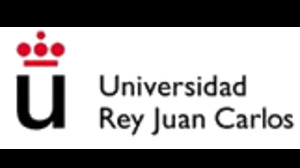
The Master's degree is made up of 60 credits and is developed in an academic year. The courses, that are made up of the first 24 credits (fundamentals), are compulsory. The speciality is made up of 18 elective credits. The Master's dissertation and the internships can be done over the year. The teacher's planning will be explained later.
Students must choose between one of the two elective courses (course 2 or course 3)
Each of the courses of the speciality are made up of the offered itineraries: Management of Tourist Companies and Planning of Tourist Destinations. The last course includes the UNESCO course that integrates topics and seminars multidisciplinarily and throughout the subjects, whose objective is the 'Tourism Management of Human Heritage Sites'. The UNESCO course is part of the UNITWIN Universities Network and UNESCO Lectures about 'Tourism, Culture and Development'.
The course called 'Study cases on the Human Heritage Sites and Cities' is made up of several seminars about: management, interpretation, marketing and advertisements of the Human Heritage sites and cities, that complement the rest of the courses that belongs to the module 3.
Students who have a Spanish university degree or another degree issued by an institution of the European Higher Education Area that allows in the country, issuer of the degree, to study a Master's degree.
To have and understand different types knowledge that build the foundations and give the opportunity to be original with the regard to the development and/or use of ideas in a research setting
That our students can use different types of knowledge and their abilities for solving problems in new or unusual environments in the most ample (or multidisciplinary) contexts related to this study field
That the students are able to integrate the different types of knowledge and tackle with the complexity of formulating judges from a piece of information that can be complete or incomplete, but that includes reflexions about the social and ethic responsibilities related to the use of knowledge and judges
That students can communicate their conclusions, knowledge and last reasons provided before specialized and non specialized public clearly and without ambiguities
That students acquire learning skills that enable them to continue studying by following an autonomous or self directed method
MÓDULE I: FOUNDATIONS (COMPULSORY)
International Tourism Economics: Impacts and Models.
Research Methods in Tourism
Legal Environment in the Tourism Industry
Management accounting: planning and control
Information Technology and Systems
Leadership and Management Skills
Environmental Sustainability in the Tourism Industry
Quantitative Methods for Decision Making in Tourism
MODULE II: INTERNATIONAL MARKETING MANAGEMENT (ELECTIVE) *
International Marketing Management
International Tourism and Hospitality Consultancy
Strategic Management in the Tourism Industry
Entrepreneurship in Tourism: The Business Plan
Fundamentals of Revenue Management
MODULE III: TOURISM DESTINATION MANAGEMENT (included module UNESCO) (ELECTIVE) *
Cultural Heritage Management
Historic Routes and Cultural Itineraries
Sustainable Tourism in Natural Protected Areas
Tourism Destination Management
Case Studies of the World Heritage Sites by UNESCO (Different Seminars)
MÓDULE IV: MASTER’S DEGREE FINAL PROJECT
Internship
Master’s degree Final Project
*WHEN YOU WILL COMPLETE THE ENROLMENT PROCESS IN THIS MASTER, PLEASE YOU HAVE TO SELECT AMONG SUBJECTS OF MODULE II OR MODULE III (one side or the other). THIS IS DUE TO THE UNFOLDING FOR THE MASTER IN THIS TWO ITINERARIES
Internship
Final Master’s Thesis
Official qualification
Selection of Applicants
General entry requirements:
The student's profile is the one who is holder of an university degree and is interested on the applied research and the management in the tourism field.
The most adequate candidates for studying the Master's Degree in International Tourism Management shall be those candidates who are holders of a Bachelor's Degree in Tourism or holders of other field such as: economical sciences, legal sciences, social sciences and human sciences.
It will be taken into account the following merits:
Academic Record (50%)
Knowledge of English (minimum level B2) (20%)
Tourism professional experience (20%)
Specialized tourism training (10%)
Terms and Conditions or special entry exams:
A B2 Level of English required
If it is needed, it will be assessed the student's resume by taking into account his/her work experience, his/her interests according to the master's objectives, as well as, his/her academic record.
Offer of a place: 35 places. If the course does not reach the minimum number of students, the University can choose not to open the teaching group.
Información Adicional
60 ECTS
Otros cursos